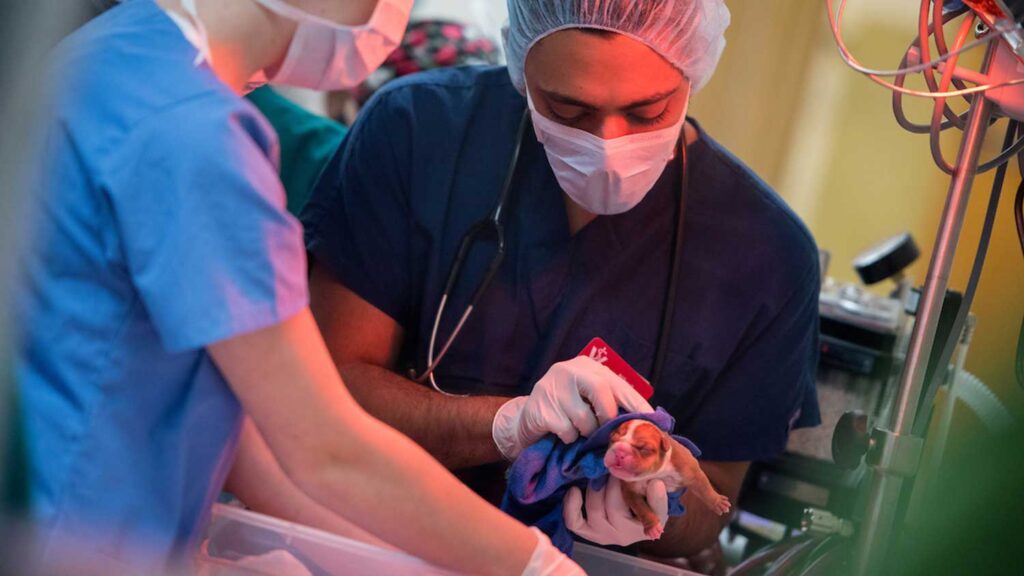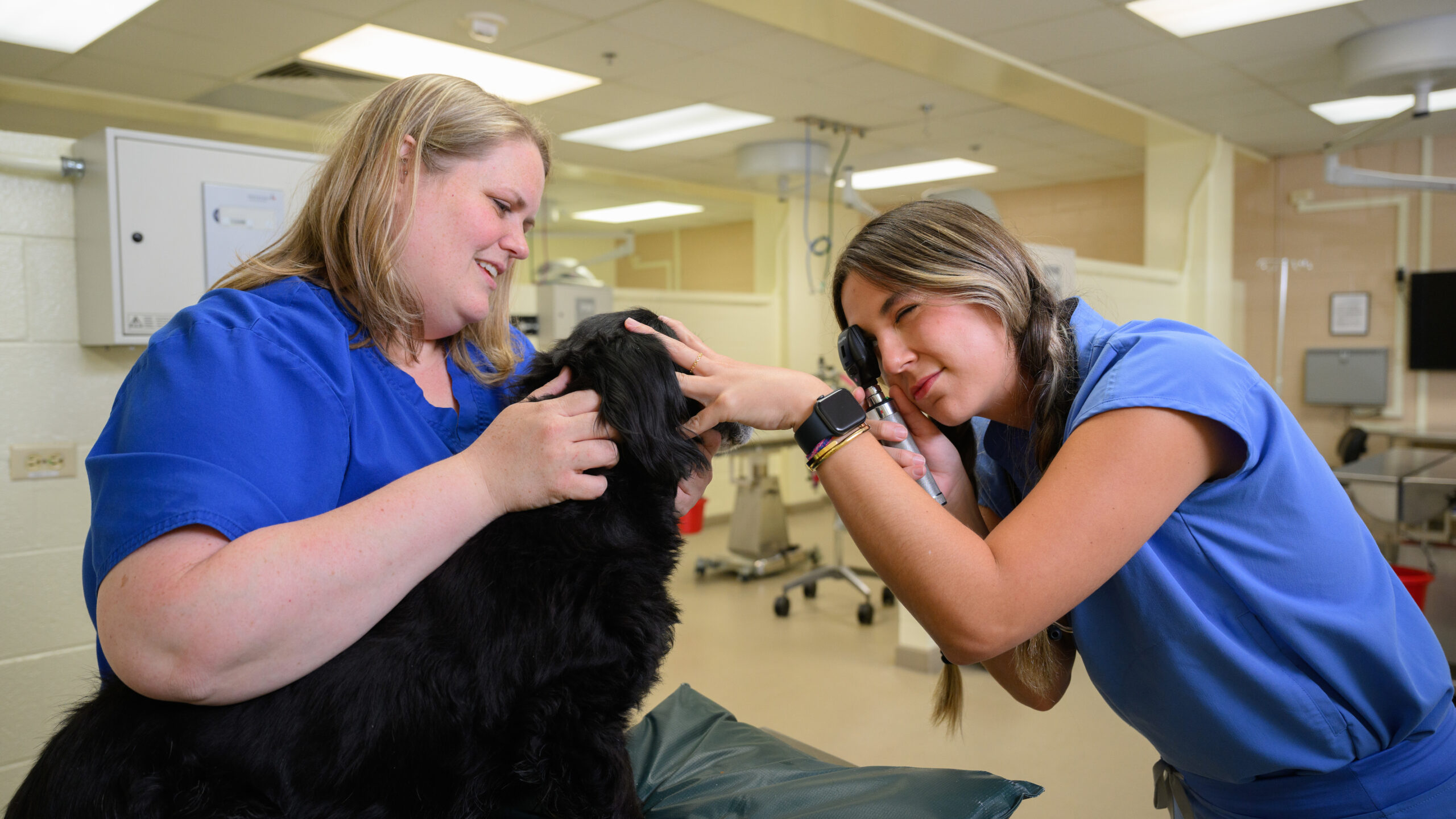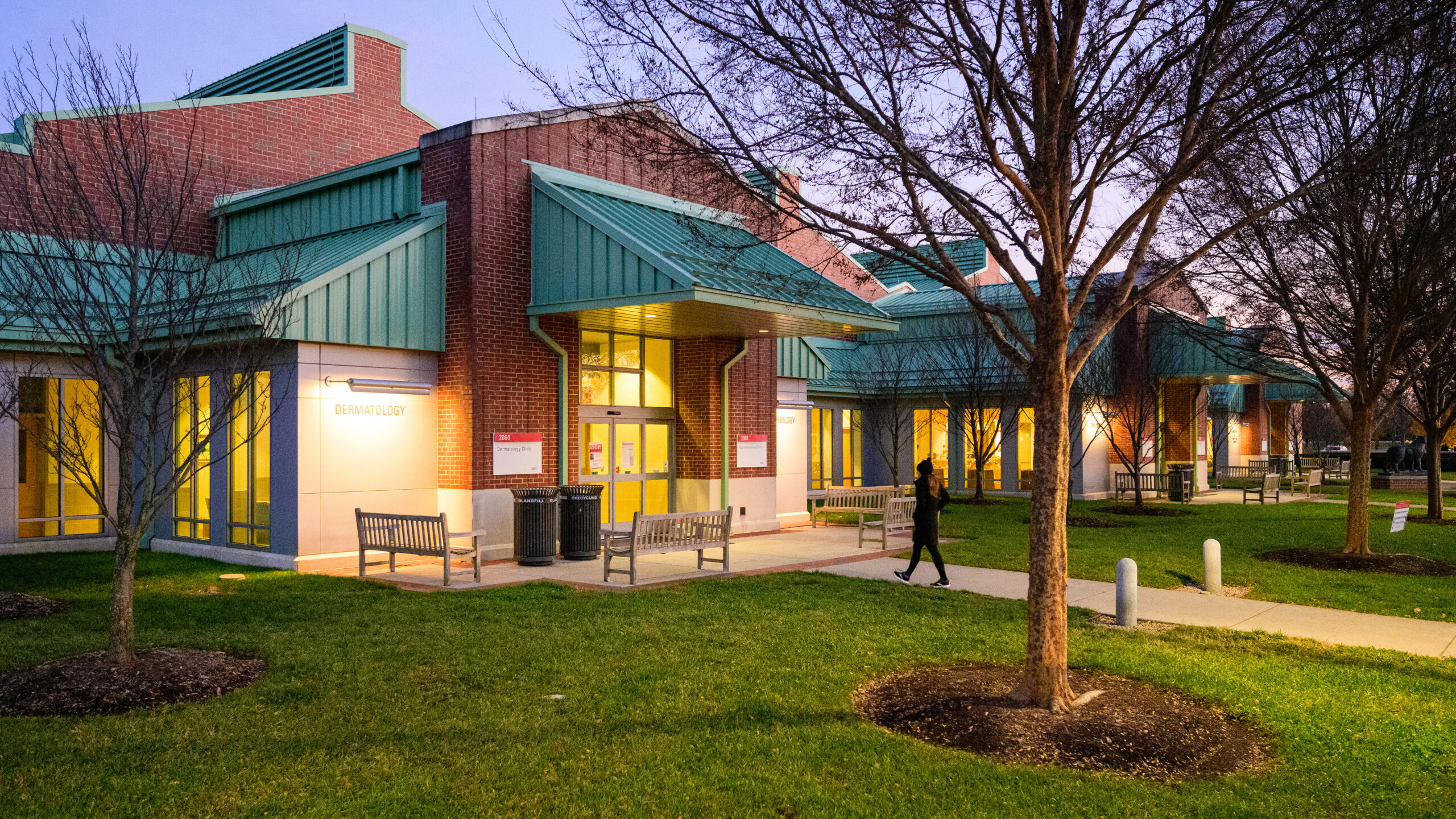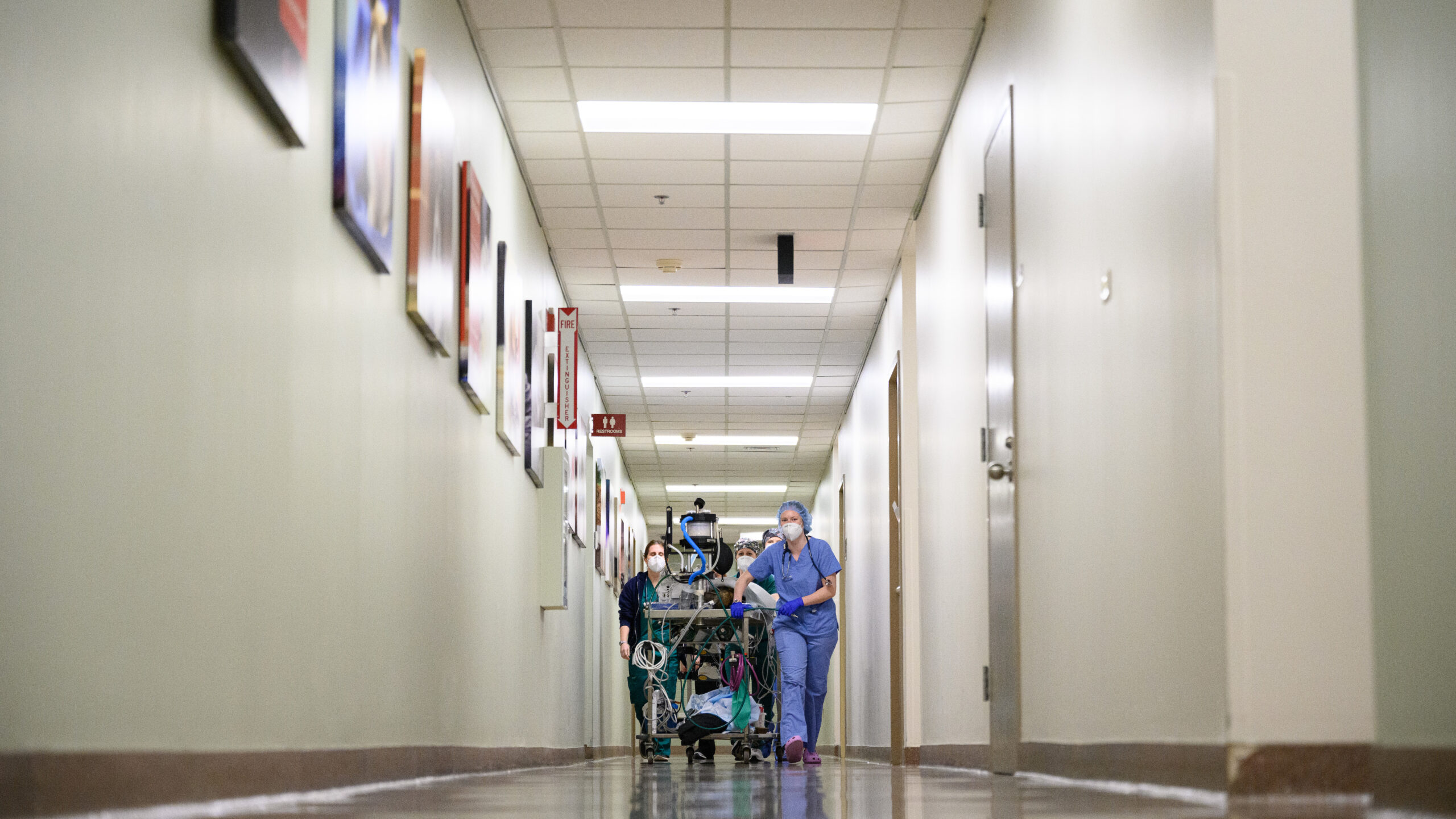Small Animal: Reproduction
The Theriogenology and Reproductive Medicine Service at the NC State Veterinary Hospital offers clients and referring veterinarians consultation and services in both gynecology (female) and (male) reproductive medicine.

Overview
As one of only a few universities with an established program and ongoing research in canine fertility/pregnancy, our clinicians are specialized in areas such as reproductive surgery, ultrasonography and advanced reproductive techniques like embryo transfer and in vitro fertilization.
Our team also offers services for male reproductive health including breeding soundness exams, semen collection and long term frozen semen storage at our facility with automated fill systems, external security service for temperature monitoring and 24/7 staffing. As a recognized USDA importer and certified international exporter with experience shipping worldwide, our team can also ship both fresh and frozen semen.
Contact Us
- Hours: Monday through Friday, 8 a.m to 5 p.m
- Phone: 919-513-6999
- Email: NCStateTheriogenology@ncsu.edu
Our Specialties
- Timed c-sections (gynecology)
- Newborn care (gynecology)
- Diagnosis and treatment of infertility (gynecology)
- Pregnancy diagnosis/maintenance (gynecology)
- High-risk pregnancy management (gynecology)
- Trans-cervical insemination (gynecology)
- Whelping/dystocia assistance (gynecology)
- Diagnosis and management of reproductive diseases (gynecology)
- Kennel problem work-up (gynecology)
- After-hours emergency service (gynecology)
- Breeding soundness exam
- Geriatric health screening for prostate disease
- Personalized service for handling semen import and export logistics
- Semen collection and shipment
- Emergency gamete rescue for stud dogs that pass away unexpectedly
Appointments and Referrals
The Theriogenology & Reproductive Medicine Service is available to the general public and welcomes referral cases.
Submit a radiograph
Hardcopy radiographs or digital images on a CD or other solid media can be sent with the patient at the time of referral. Hardcopy images are typically returned to the clinic via USPS. CDs are not returned to the owner or clinic unless otherwise requested.
Ideally, digital images should be sent electronically directly to the VH using a standard ‘DICOM connection’. The emailing of images is to be avoided where possible as this necessitates considerable image compression resulting in a loss of image quality. The DICOM address for images accompanying a patient being referred to the VH is:
Application Entity (AE) Title = NCSU
Internet Protocol (IP) address = 152.1.80.60
Port = 104
If you are unable to configure a workstation within your hospital to send images via a DICOM connection to a destination outside your hospital, you should contact your workstation vendor or IT engineer for assistance. Almost all popular workstations have this functionality and once the setup screen is accessed, adding a remote destination is usually relatively straight forward. The workstation must be able to access the internet. Sometimes firewall modifications are necessary.
Once you have submitted images, you should email either Radiology, (vthradiology@ncsu.edu), or the service to which you are referring the patient. Contact details for the various clinical services are available here. If you do not contact us in some way, either by telephone or email, we will not know the images have been sent nor will we be able to identify them on our server. When emailing notification that you have sent images to our server, please include the following information:
- Clinic name and phone number
- Patient name and owner last name
- VH service to which you are referring
- Approximate date of appointment
- Your entry in the Patient ID field or date the images were acquired
If it is necessary to email images, please email images directly to the service to which you are referring. For after-hours emergency patients being seen by the Small Animal Emergency Service, contact the service directly, (919-513-6911), to ensure they are aware images are available for review. This will minimize the need for repeat imaging on presentation.
Why are radiographs and laboratory tests often repeated following admission to the VH?
Every effort is made not to repeat diagnostic testing. Ideally, we would only perform diagnostic tests that complement your previous evaluation. However, patients are often referred to NCSU with undiagnosed or progressive conditions making repeat diagnostic imaging and laboratory testing necessary to better understand the disease process and progression. Also, repeat diagnostic testing is often helpful to monitor response to therapy. Additional tests may be performed at the time of admission or throughout the patient’s hospitalization. Clients prepared in advance seldom have concerns about additional tests.


